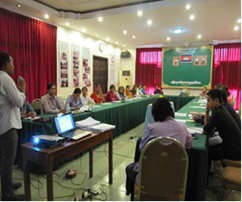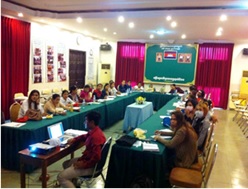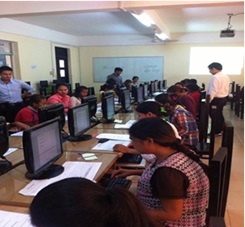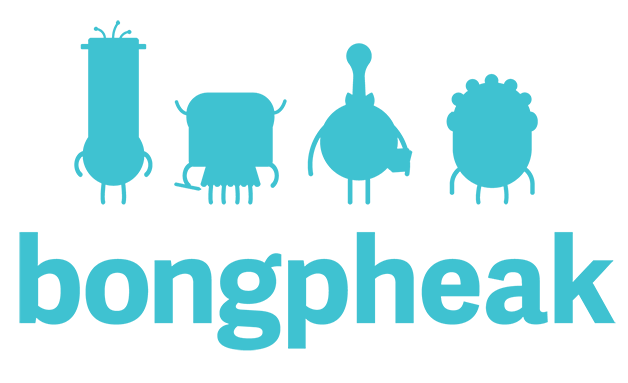 Cambodian
Cambodian English
English
Young Women and Girls Living with HIV and Lesbian Bisexual Transgender Claim Their Rights
 Project background orientation by program managerBattambang: 27 April, 2015Photo: Open Institute
Project background orientation by program managerBattambang: 27 April, 2015Photo: Open Institute
OI :Young women leaders, women living with HIV, and LGBTs expressed happiness when they learned there is a law that saves them from discrimination. “In the past, I did not know that there is a law to protect the rights of people living with HIV in our society or a policy platform to protect the rights of Lesbian Bisexual Transgender (LBTs). Now, we know and we can share this information with other affected people in my village,” said a young women living with HIV, 24 years old, from Roka commune, Sangke district, Battambang (BTB) province in a training session organized by Open Institute in her own province.
This three day training from 27-29 April is one among many other activities of the project “Strengthening Capacity of Young Women Leadership Network,” funded by UN Women. The training aims to build the capacity of Young Women Leadership Network (YWLN), Young Women and Girls Living with HIV (YW/GLHIV), and LBT in the BTB province and project network/NGO partners (CamASEAN, CCW, CPN+, and others networks) on the women’s human rights including rights of YW/GLHIV and LBT, on CEDAW, COB and social media (use of computers and phones for communication).
Participants learn about the history of CEDAW and the United Nations, the purpose of these organizations, what work the United Nations does for women, and what the Government of Cambodia does for CEDAW. In Cambodia, there are two Institutions in charge of CEDAW. The first one is Cambodia National Council for Women (CNCW), which has members from all Ministries; the second one is NGO Committee in charge of CEDAW (NGO-CEDAW), with 90 NGO members. NGO-CEDAW was established in 1997 with only 9 NGO members at that time. It has been supported by DCA since 2009 and by UN Women (Former UNIFEM) since 2007. Participants also gained a basic understanding of the Universal Declaration on Human Rights, and articles of CEDAW and COB. Beijing Declaration 1995 was introduced to participants including 12 critical points for the issues of women and girls in around 185 countries and the Beijing +20 in 2015, which worked for Women’s issues in the world. Lastly was the short introduction about the MDGs (Millennium Development Goals) from 2000 to 2015.
In order to voice the concerns and needs of YW/GLHIV and LBT, these women need to have a basic knowledge of policy advocacy which refers to the process of seeking support and encouragement of people to: 1) show/share their view and concerns to others; 2) have opportunities to access information and services; 3) protect and promote rights and responsibilities; and 4) seek options and choice.
 Participants listened to facilitator explanation on policy advocacyBattambang: 28 April, 2015Photo: Open Institute
Participants listened to facilitator explanation on policy advocacyBattambang: 28 April, 2015Photo: Open Institute
How can people express their concerns? How can their voices be heard and recognized? These were questions that were asked to the participants by the facilitator. Messages could be heard through offline communication platforms such as meetings, forums and workshops. However, with the development of technology, online communications such as Facebook, WhatsApp, Line, and Tango, and radio, TV and others are now being used. Internet and Email were introduced in the training. Advantages and methods to create were explained to the participants.
Please note that participants included are key HIV affected women of Roka commune, Battambang province. More than 200 people have tested positive for HIV in a mysterious outbreak of the virus in Battambang province’s Roka commune, including 17 migrant workers who returned home to Thailand to have their blood checked. The virus was first detected in Sangke district’s Roka commune in late November, though the extent of the outbreak—which has baffled health officials and resulted in the arrest of a local doctor—was not fully understood until earlier December of last year.
YW/GLHIV and LBT are vulnerable groups that are facing discrimination from society even though there is a law and various interventions of the government and civil society. Key affected women are reluctant to show up at public places, girls with HIV are discriminated against by their teachers and friends at school, while young LBT are abandoned by their families and are stigmatized. One young girl who is one among other affected person said, one morning when she enters her classroom, her teacher asked the class, “Are there any HIV affected persons from Roka commune in this class?” She kept silent but felt so shameful.
Article 33 of the Law on the Prevention and Control of HIV/AIDS says the confidentiality of all persons who have HIV/AIDS shall be maintained. Article 37 says, “No educational institution shall refuse or expel, discipline, isolate or exclude from gaining benefit or receiving service to a student [affected with HIV]…”
The law protects the rights of affected people and punishes those who violate the law.
Discrimination against HIV/AIDS persons is prohibited as mentioned in article 36: “Discrimination in any form at pre and post employment, including hiring, promotion and assignment, living in society based on the actual, perceived or suspected HIV/AIDS status…is strictly prohibited.”
The Concluding Observations of the CEDAW Committee on the combined 4th and 5th report of the Royal Government of Cambodia highlights the concerns expressed by this monitoring body in regard to the underrepresentation of women in public life; discrimination against pregnant mothers living with HIV…
The Law on the Prevention and Control of HIV/AIDS, which was enacted by the National Assembly on 14 of June, 2002 at its 8th plenary session of the 2nd legislature, and entirely approved by the Senate of it form and legal concepts on the 10th July, 2002 at its 7th plenary session of the 1st legislature.
The Cambodian Constitution states the right of all Cambodians to be treated equally. While Cambodian national laws and policies do not identify same-sex activities as a criminal offence, the rights of LGBT’s are not stipulated in any laws or policies. There is no law sanctioning anti-discrimination or punishment for those who violate the rights of LBT people. Various statements have been made by high-level political leaders expressing support for LGBT rights. For example, a public pronouncement was made by Cambodia’s former King, His Majesty King Father Norodom Sihanouk, in support of same-sex relations in 2004.
The Cambodia National Human Rights Commission has not been involved in LBT issues, and did not comment on LBT rights issues raised in reports to the UN Human Rights Commission (UNHRC) for the 2013 UPR.

The past decade witnessed the emergence of the first network of men who have sex with men (MSM) and transgender persons in 2006; a group of LGBT named Rainbow Community Kampuchea (ROCK) in 2009 (CCHR, 2010); and the first officially-recognized LGBT organization in 2014. The second one is Cam ASEAN Youth’s Futurewhich was established on 3 January 2012. The LGBT community has become increasingly vocal in advocating for their rights, including rights related to sexual health and protection from HIV.
After the training participants were very happy to gain basic knowledge on Human Rights, CEDAW, Law on the Prevention and Control of HIV/AIDS, etc, and are able to share what they have learned to their friends and neighbors. They are now aware of the law that protects their rights and are brave enough to speak out to demand that their rights be respected.
Category:
- Log in to post comments





